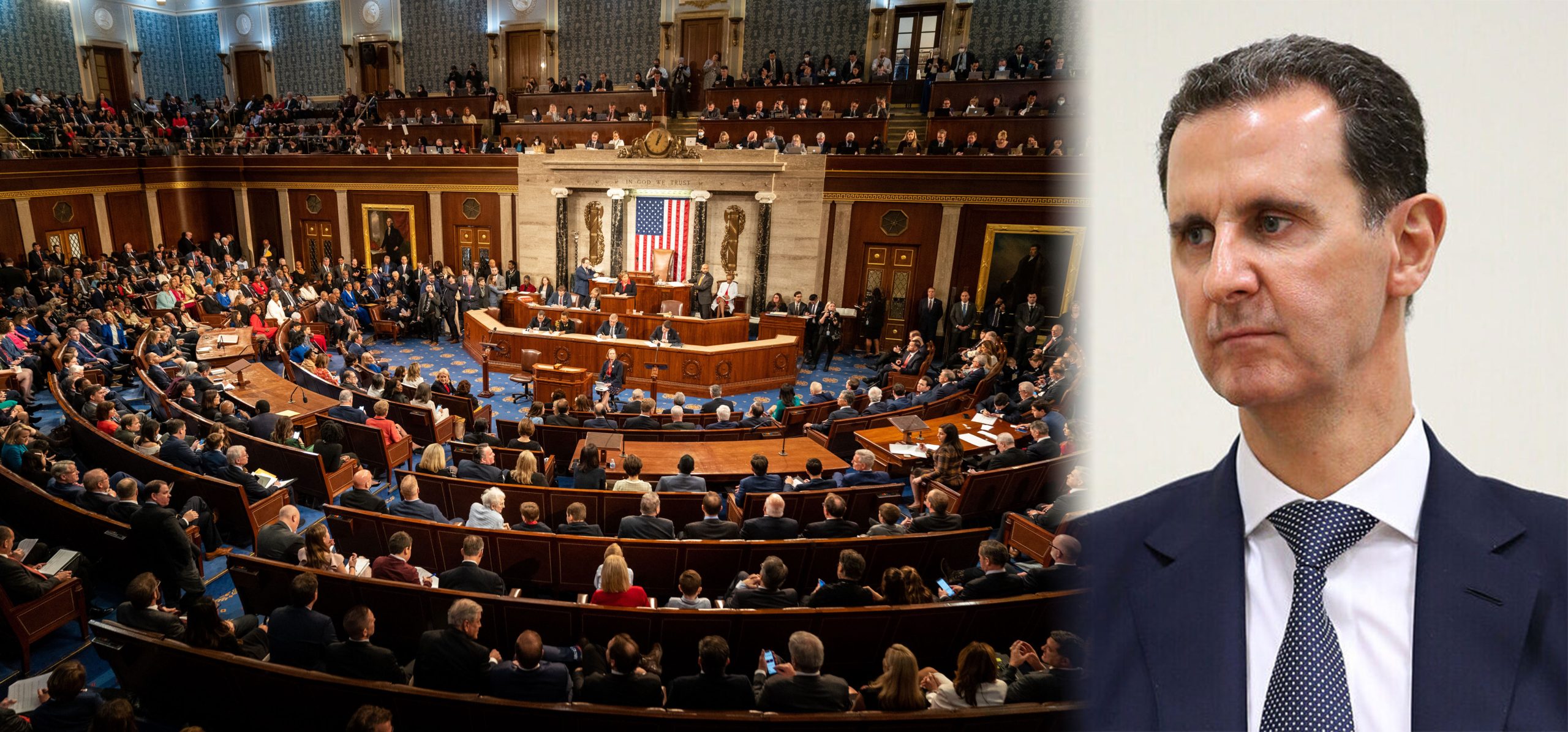On May 9, 2022, U.S. Democratic and Republican lawmakers introduced the Assad Regime Anti-Normalization Act of 2023, which included modifications to the Caesar Syria Civilian Protection Act that took effect on June 17, 2020. The Caesar Act authorizes economic, financial, and banking sanctions on those who do business with the Syrian government or provide any assistance or funding to the Syrian President Bashar al-Assad.
Tightening Restrictions
The new legislation expands sanctions on states, entities or individuals dealing with the Assad regime, the most important of which are:
- Imposing sanctions on any government recognizing Assad’s regime and government, or normalizing relations with the Syrian government led by President Bashar al-Assad.
- Use all available means to prevent any reconstruction activities in areas under the control of the Assad regime.
- Obligating official U.S. entities (such as the U.S. Department of State and Treasury) to submit a report to the specialized congressional committees on any activities by governments of other states which have normalized political, diplomatic or economic relations with Syria, clarifying American countermeasures in the same regard, and referencing in the report any meetings by diplomatic representatives from Algeria, Egypt, Jordan, Iraq, Oman, Bahrain, Kuwait, Saudi Arabia, Tunisia, Morocco, Libya, Lebanon, and Turkey with the Syrian regime.
Rejected Measures
The proposed bill reflects a US inclination to categorically reject the return of Bashar al-Assad’s regime because of his crimes against civilians (according to the new bill). At the same time, the bill reflects the following concerns over US interests as the region’s economy undergoes structural change:
- Growing power by political foes: Normalizing relations with Syria across Arab states, particularly at the economic level, stands to benefit several countries including Iran, Russia and China. Since many Russian and Iranian companies operate in strategic sectors in Syria, such as energy and desalination, the exit of those companies from Syria is unlikely in the foreseeable future. Indeed, the role of those countries’ companies in Syria is expected to increase if they receive indirect Arab assistance or investment.
Russia’s mediation efforts to restore Saudi/Syrian relations in 2023 have deepened US concerns over its influence in the region (according to US sources). This coincides with China’s success in reducing tension between Iran and Saudi Arabia, indicating mutual strategic interests for both Moscow and Beijing in normalizing relations between Iran, Syria and Arab states, spurring concerns and reservations over Western influence and dominance in the region vis-à-vis Asian powers.
- Fearing the repercussions regional blocks: Developing connections with countries in the region by building mega projects increases Iranian and Iraqi influence in Syria. This strengthens trade relations between the three countries, paving the way for Iranian exports to the Arab Mashreq, as well as reinforcing China’s Belt and Road initiative. Indeed, Syria signed a Memorandum of Understanding in January 2022 with China to join the initiative, and Iranian schemes to create a transport network linking it to the Syrian port of Latakia capitalizes on the benefit of being a vital corridor connecting China to the Arab Mashreq (see Figure 1).
Fig 1: Arab Mashreq
Source: www.fdd.org
The Tehran-Mediterranean Railway is a vital belt for both Russia and China, linking them to Iran via a road and rail network, through the North-South Transport Corridor linking Russia to Iran, as well as railways linking Iran to China (see Figure 2). This will provide the two countries with access to the Mediterranean Sea provided that the routes are secured, logistical services are available by the relevant companies, and trains and lines are maintained.
Figure 2: Land Routes between Russia, China, and Iran
(Source: www.irna.ir, www.onthemosway.eu)
Apart from land connectivity, electrical network plans are underway across Arab states, including Syria and Turkey, known as The Eight Country Interconnection Project (EIJLLPST) (see Figure 3), which will extend to the European electricity grid. This project could undermine American relations with European countries, because electricity would be exported from Arab states to Europe, increasing European dependence on the region, thus creating new pressure on Western policies as was the case when Russia monopolized the energy industry, thereby creating an energy crisis in Europe.
Figure 3 The Eight Country Interconnection Grid between Arab states and Turkey
Source: Arab Fund for Economic and Social Development
- Ensuring the competitiveness of Israel’s economy in the region: other than creating a new hotbed of tension for Israel on its borders should the situation in Syrian territory stabilize, the emergence of solidarity in the Arab Mashreq will undermine the Israeli economy. Historical differences between Israel, Iraq, Syria, Lebanon, Iran and Palestine remain an obstacle to the normalization of Israeli relations in the Arab region. Tel Aviv would normalize bilateral relations only, which would have a negative impact on its blueprint for increasing trade and investment relations with Arab states.
Israel’s economic isolation is undermined further against the backdrop of the emergence of a strong Arab front. If Syria re-enters the League of Arab States, Syrian ports are a direct competitor to its Israeli counterparts. Especially if it is developed through investments from Arab countries, or China’s involvement, especially since there is US opposition to Chinese presence as operators and developers of Israeli ports. Indeed, the Shanghai International Port Group (SIPG) which was supposed to be operate a new container terminal in the port of Haifa, was replaced by a consortium consisting of the Indian company Adani and the Israeli company Gadot.
Increased burdens
In conclusion, the political transformation taking place in the Middle East is reshaping the region’s economy through integration that aims to halt losses resulting from the continuing conflict between its states. Syria’s return to normal relations with Arab states is a pivotal step in that formulation. In spite of the potential for a long-term breakthrough in Arab economic cooperation, US doubts and concerns will cause it to disrupt Syrian normalization in the Arab region, unless Washington’s interests and vision for the Middle East is secured in a way that circumvents China and Russia’s extension in the region.


